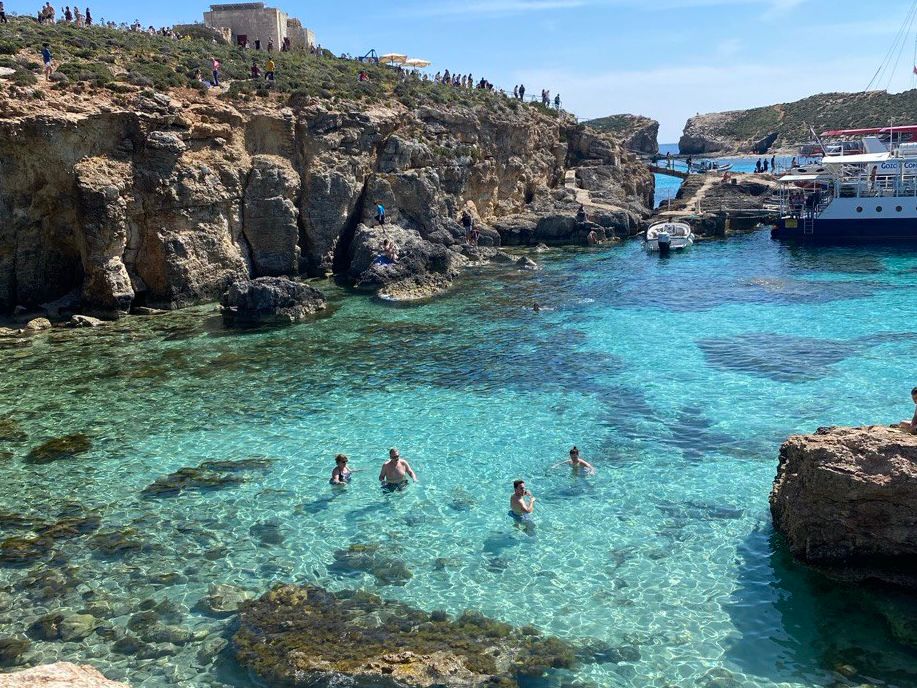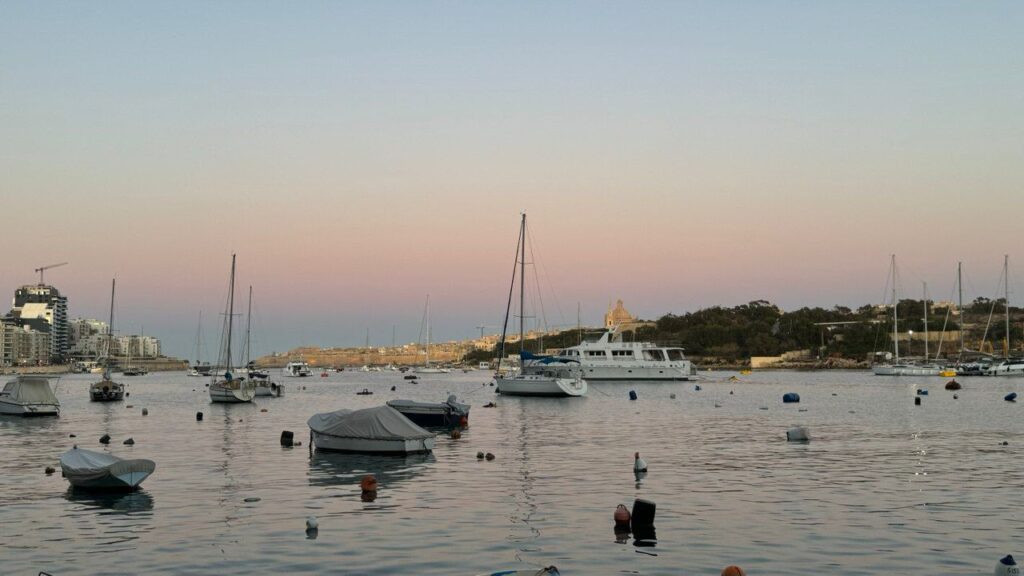Malta is getting more and more traction in nomad circles. We’ll discuss later why this is the case. However, one of the reasons is definitely that Malta tax residency comes with good tax breaks which can help you to save a good amount of money.
Key Takeaways on Malta Tax Residency
- Different tax rules apply for digital nomads, applicants of the global residence program and other tax residents
- Digital nomads can get a tax exemption for up to 12 months and after that benefit from a flat tax of 10%
- There are also special tax rates for people coming to Malta under the Malta Global Residence Program
- If you don’t qualify for this benefit you’ll obtain the lowest tax rate by setting up a Maltese company
- In order to become a tax resident of Malta you’ll have to spend 6 months on the island
Benefits of a Tax Residency in Malta for Digital Nomads
The exact benefits of Malta tax residency for digital nomads depends on the visa you apply for.
If you apply for the digital nomad residence permit one set of rules apply.
Other rules apply for applicants of the global residence program.
If so, they can get a tax exemption and lower flat tax rates. We’ll discuss more in detail what this exactly means later on in the article.
If you don’t qualify for the nomad residency permit or global residence program, there is no reason to panic because Malta still offers attractive tax setups for you.

Tax Rules in Malta
In this section we’ll have a look at the different tax rules in Malta, both for individuals and for companies. In this way you gain a good understanding of what it means to have your Malta tax residency.
Requirements for Malta Tax Residency
Malta has different approaches to tax residency with different gradations. You can be a resident in Malta on the one hand, but you also have the concept of domicile on the other hand.
Malta evaluates residency rather on the short term. Generally, if you spend more than six months (183 days rule) in the country, Malta will see you as a tax resident.
However, if you have or don’t have your residence in Malta is mainly evaluated on a factual basis.
Maltese domicile refers rather to your long term intentions.
If you have, or intent to have, your permanent home in Malta, you will be domiciled in Malta. However, you can always declare that you don’t have the intention to become domiciled in Malta and be seen as non-domiciled.
If you look at Malta for digital nomads, the division between being an ordinary tax resident or being a domiciled there is important.
The reason for this is that if you are domiciled in Malta, Malta will levy taxes on your worldwide income.
While if you are only an ordinary tax resident, you will only pay taxes on your Maltese source income and any income remitted back into Malta.
Whether or not certain income is local source income or remitted back into Malta is a question of fact and should be assessed in detail for each case.
Malta Tax Residency: Personal Income Tax Rates
Once you know which income Malta will tax, we need to have a look at the applicable tax rates.
Maltese personal income tax rates are progressive and start at a level of 15% as from around €9.000,00. The highest rate is 35% as from an income of €60.000,00.
Also capital gains and investment income (e.g. dividends) are subject to the same rates. Yet, for foreign income this only applies if the money is brought back into Malta.
However, different rues apply for people on the nomad residence permit (cfr. infra).
If you want to learn more about taxes on cryptocurrencies in Malta you can also check our dedicated article.
Maltese Social Contributions
Next to income taxes, you will also need to account for social contributions.
For self-employed nomads, social contributions amount to 15% of their income. Nevertheless, the maximum weekly contribution amounts to around €75,00 per week or €3.900,00 per year.
If you are an employee, both you and your employer need to pay social contributions at a rate of 10%.
Yet, maximum contributions apply. These are €52/week for the employee and €104 for the employer. Thus, the total maximum contribution will be a bit over €8.000 per year.
Corporate Tax Rate in Malta
Many people consider Malta a tax haven. However, based on the aforementioned tax rates, you probably don’t agree with this statement. I can’t blame you, you are totally right!
Malta is mainly interesting when you want to set up a company there.
The corporate tax rate in Malta totals 35%, a flat tax rate. Again, this doesn’t look too appealing!
However, Malta applies a tax refund system. This leads to a low effective tax rate. Based on the tax refund system, a shareholder can reclaim 6/7th of the corporate taxes paid.
Basically, this means that you get a refund for 30% of the total 35% in corporate taxes.
Consequently, the actual company tax rate only amounts to 5%.
The shareholder can request the refund within 14 days of the distribution.
In most cases, the refund is paid out after two to four months after the underlying company paid its corporate taxes.
This does mean, though, that from a cash perspective there is period in between where your cash will be held by the Maltese tax administration and you can’t use it yourself.
Nevertheless, there is the possibility to setup a company structure where the tax refund is accounted for immediately. Hence, there will be no negative impact on cash flow.
Maltese Withholding Taxes
So, we established that if the company pays out a dividend, you can reclaim most part of the corporate taxes.
Nevertheless, if we talk about dividends, the question is always if the company needs to apply a withholding tax rate.
Malta does not levy any withholding tax.
Accordingly, setting up a company in Malta might enable you to enjoy a total tax rate as low as 5%.
The Nomad Residence Permit
Malta launched their digital nomad visa in 2021.
There are some requirements you need to meet. The most important one is probably that you need to have a minimum income of €42.000 per year.
You can check out my dedicated post about the digital nomad visa Malta if you want to learn more about the requirements and application process.
If you want more information, you can also visit the official website of the Nomad Residence Permit.
Another attention point is the tax situation of people staying in Malta on the digital nomad visa.
Basically, you can get an exemption from taxes for the first 12 months and after that you only pay a fixed rate of 10% on your qualifying income.
You can have a look to my article about the tax advantages for the Maltese nomad residence permit if you want to check out the details.
The Malta Global Residence Program (MGRP)
The Malta Global Residence Program is designed for citizens of non-EU/EEA countries to allow them to move to Malta.
In order to qualify for the global residence program, applicants need to meet certain requirements. Hereby an overview of the most important ones:
- Property investment: invest at least €275.000 in a property or rent a property for at least €9.600 per year. Lower thresholds apply in Gozo or southern Malta.
- Financial stability: have sufficient means or income to support themselves and their family.
- Physical presence: don’t spend more than 183 days per year in any other jurisdiction.
Income from inside of Malta is taxed at a flat rate of 35%, while if you bring in income from abroad you can benefit from a flat tax rate of 15%.
Foreign income not brought back to Malta remains tax exempt.
You do need to pay at least €15.000 in taxes per year though.

How to Become Tax Resident in Malta
You can get Malta tax residency if you proof you spend at least six months in the country.
The first step in doing so is to obtain a valid residence permit. You can get this through the nomad residence permit, the global residence program or any other way that works for you. EU/EEA-citizens, for example, don’t need a visa to move to Malta.
Next, you’ll have to spend the necessary time in the country to qualify as a tax resident.
Furthermore, you’ll need a rental agreement and utility bills to proof you’re connection to the country.
Is Tax Residency in Malta a Smart Choice for Reducing Taxes as Digital Nomad or Expat?
Malta tax residency is a great choice if you qualify for the digital nomad visa and do like to spend your time in Malta. Yet, even if you don’t qualify for the digital nomad visa but you have the option to obtain Malta tax residency, this can be interesting.
However, if you don’t intend to spend six months per year in Malta, this could get you in trouble as you might not qualify as a tax resident anymore.
If you do spend the necessary time in Malta, you can benefit from the lower tax rates which are mainly interesting if you use a setup with a Maltese company.
Is Malta a Nice Place for Digital Nomads?
Malta is gaining momentum with digital nomads and more and more remote workers decide to spend some time in the country. There are various reasons for this:
- Digital nomad visa: the fact that Malta offers a digital nomad visa enables many nomads to stay for a longer period of time in the country without needing to worry about their visa situation.
- Connectivity and infrastructure: Malta offers high-speed internet and also has good mobile data coverage. Furthermore, more and more coworking spaces are popping up on the island which gives digital nomad extra options to work from there.
- Community and culture: due to its location and history, Malta has always been a hub for international people from different places. This also comes back in the rich culture.
- Lifestyle: Malta offers a nice climate with a lot of sun and moderate winters.
- Accessibility: although Malta is an island it’s rather accessible. You can easily get get there by airplane or even ferry.
- Low taxes: if you really want to establish yourself in Malta, you can save on taxes through the digital nomad visa or by making using of the other beneficial Maltese tax rules.
As you can see it’s no surprise so many nomads are discovering Malta or even take the step to Malta tax residency.
Let me Figure Out the Best Tax Strategy for You
If you want to make sure that Malta is the right place for you, I suggest booking a consultation so we can go over your situation in detail. I’ve noticed many clients would have missed out on good options if they just base themselves on generic advice.
